Anglican clerics defy British embassy to kick-start Egyptian tourism
by - 14th October 2016
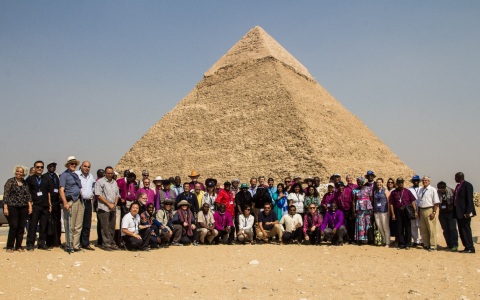
IN A defiant gesture of faith from beneath the Pyramids, Anglican bishops sent a message to the world this week: Egypt is safe.
And this on a weekend the UK embassy warned against visiting public places.
Representing twenty of the more conservative provinces of the worldwide Anglican Communion, delegates to the Sixth Global South conference in Cairo visited the Giza pyramids and dined on the Nile in a show of solidarity.
‘I appeal to you as an Egyptian, please return and visit Egypt,’ Bishop Mouneer Hanna Anis, chairman of the Global South, told delegates.
‘Our economy depends on tourism, and when it is down, thousands of Egyptians cannot earn a living.’
The tourism sector employs roughly four million Egyptians, representing 12.6 percent of the work force. But according to the Central Bank of Egypt, tourism revenue declined by nearly a half - 48.9 percent - year-on-year to September 2016.
The 31 October, 2015 crash of Russian Metrojet Flight 9268 over the Egyptian Sinai desert, claimed by the Islamic State, had a disastrous impact.
Russia, who represented 35 per cent of arrivals, has since barred all flights to Egypt, and the UK at 12 per cent have canceled flights to resort areas in the Sinai.
Ghostlike
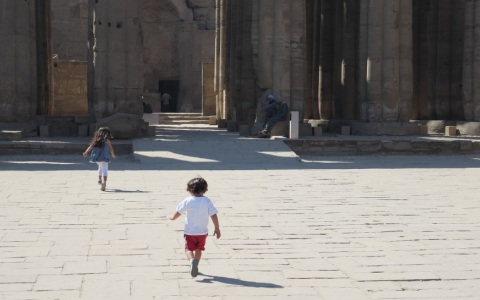
In Cairo the pyramids stood empty. In Luxor there was just one family at their hotel, where staff threw a party for their one-year-old’s birthday, to show their appreciation.
American Darren Haley said: ‘It was sad to see just how much Egypt has to offer and how few are willing to take the journey. Egypt is history just waiting to be explored.’
Insurgency
Egypt is struggling to promote tourism with an ongoing Islamist insurgency.
The Ministry of Foreign Affairs reacted furiously to UK and other embassy warnings that they said could ‘harm the country's economy.’
Without identifying the threat, the UK embassy issued a warning 7 October to avoid ‘large gatherings and public spaces,’ specifically mentioning museums.
‘Most terrorist attacks target the security forces,’ reports the embassy website,‘but it’s likely that foreigners, including tourists, will also be targeted.’
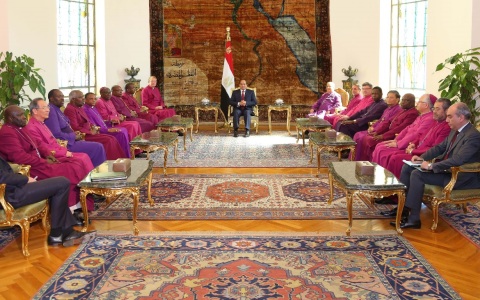
So the bishops’ stance is all the more remarkable. ‘I wanted the Anglican delegates to see a different picture of Egypt than what they see in the media,’ Bishop Anis told Lapido.
‘It is unfair to call Egypt unsafe, as we have seen there is no place in the world safe from terrorism.’
Before the Russian airline crash tourism was showing signs of recovery. Revenues had increased 45.3 percent compared to a year earlier.
Rebound
Egypt hopes a second rebound is coming.
Officials are finalizing negotiations with the Russian authorities to restore flights. Egypt Air resumed London-Luxor travel on 3 October.
On 10 October Egypt completed restoration work at the shrine of King Tuthmosis III in Karnak Temple.
Last month the ransacked Mallawi Museum in Upper Egypt was reopened for the first time since pro-Morsi rioting in August 2013.
But even throughout this tumultuous period, tourists have come.
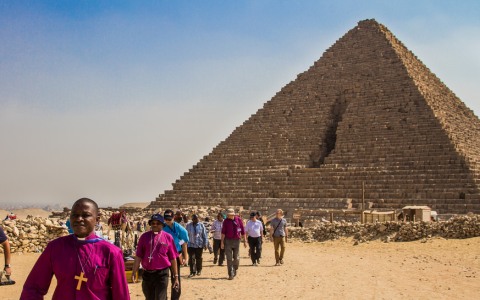
‘We have never had a bad experience, even during the uprisings of the last five years,’ Bishop Timothy Ranji of Kenya told Lapido. Every year since 2004 he has brought thirty clergy to Egypt for religious pilgrimage.
‘Egypt is secure, full of lovely people, and I invite everyone to come,’ said Archbishop Tito Zavala of Chile.
‘I am an ordinary person here. There is no need for bodyguards.’
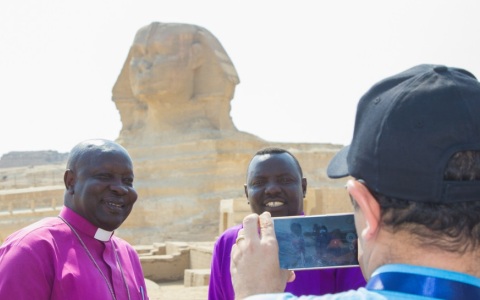
NEED TO KNOW

The government has made substantial gains against terrorism in the Egyptian mainland.
According to the Tahrir Institute for Middle East Policy, incidents decreased 67 percent year-on-year in the first quarter of 2016. They declined a further 57 percent in the three months that followed.
* The Anglican Global South represents 72 percent of the worldwide Anglican Communion. Delegates came from as far as Nigeria, Bangladesh, and Singapore, with bishops invited also from Australia, the US, and the UK.
